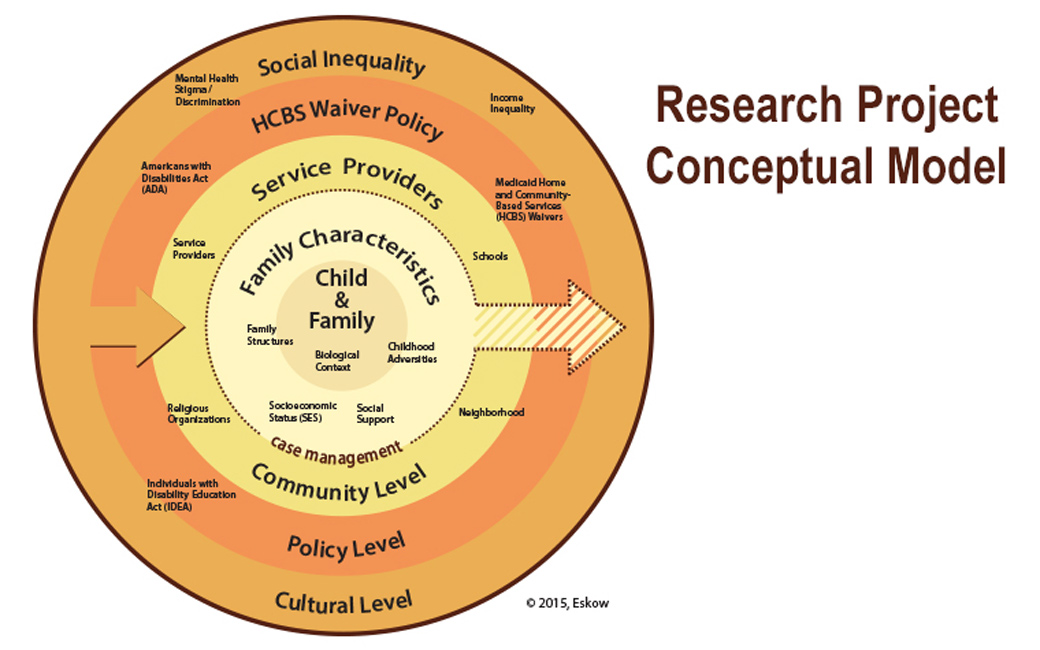Our Research

Autism presents families with many challenges. It may strain a family's emotional, physical, and financial quality of life. Yet family well-being has a direct impact on the ability of a family to advocate for and meet the needs of their son or daughter with autism. Intuitively it would seem that children in well-supported families may have better educational and employment outcomes. However, before policies can be changed to provide more support, policy makers need to know if definitive connections exist among specific supports, parental involvement, and educational or employment outcomes for children and youth with autism. This is the goal of our research.
Towson University and MSDE Collaboration
Towson University and Maryland State Department of Education (MSDE) have engaged in research to better understand the impact of Maryland’s Autism Waiver on children/youth with autism and families. Throughout the 10 years of collaboration, survey data was collected in 2008, 2011 and 2014. The Autism Services and Supports: Impacts on Families (ASIF) survey measured family quality of life (FQoL) and child progress for families who have children on the waiver (receiving funding for services) or registry (a list for children interested in applying for the waiver as openings become available). Forty-nine families who participated in the surveys were also interviewed to better understand their individual experiences and perspectives. Results of prior research show associations between enrollment in waiver programs and improved child progress, higher levels of Family Quality of Life (FQoL), and parental perception of improvements in choice and control as well as employment of household members.
Currently, Towson University and MSDE are partnering to gather information about the impact of Waiver services over time. Families who are recipients of the Autism Waiver in Maryland have been invited to complete the survey, including many families who completed the survey in a prior year. The current research aims to learn how the autism waiver programs may be affecting the trajectory of individuals with autism and their families. Research outcomes are used to support policy changes, provide a more responsive system of care, and improve supports and services for children and youth with autism and their families.
Study 1
In this study we examined the various approaches being taken in all 50 states to provide care in the community to children and youth with autism spectrum disorder. In addition, we examined state approaches to supports and services designed specifically for transition age youth (ages 18-21).
Study 1 outputs
Study 2
In Study 2 we conducted in-depth interviews with a sample of Maryland participants from the previous Maryland Autism Services Surveys (MASS), administered in 2008 and 2011, to better understand the implications of their responses to the surveys. Following the interviews we revised and re-administered the Maryland Autism Services Survey, renaming it the Autism Services and Supports: Impact on Families Survey (ASIF). The revised survey was a more targeted and in-depth probe than the two previous surveys. Our objective was to identify the impact of specific services.
study 2 outputs
- A Cross-Sectional Cohort Study of a Large, Statewide Medicaid Home and Community-Based Services Autism Waiver Program, an article authored by Karen Eskow, Ph.D., Jean Ann Summers, Ph.D., and Gregory Chasson, Ph.D. and published in the Journal of Autism and Developmental Disorders
- Family Briefs (PDF), which contain tips and wisdom for families on Case Management, Advocacy, Finances, Health Services and Informal Support